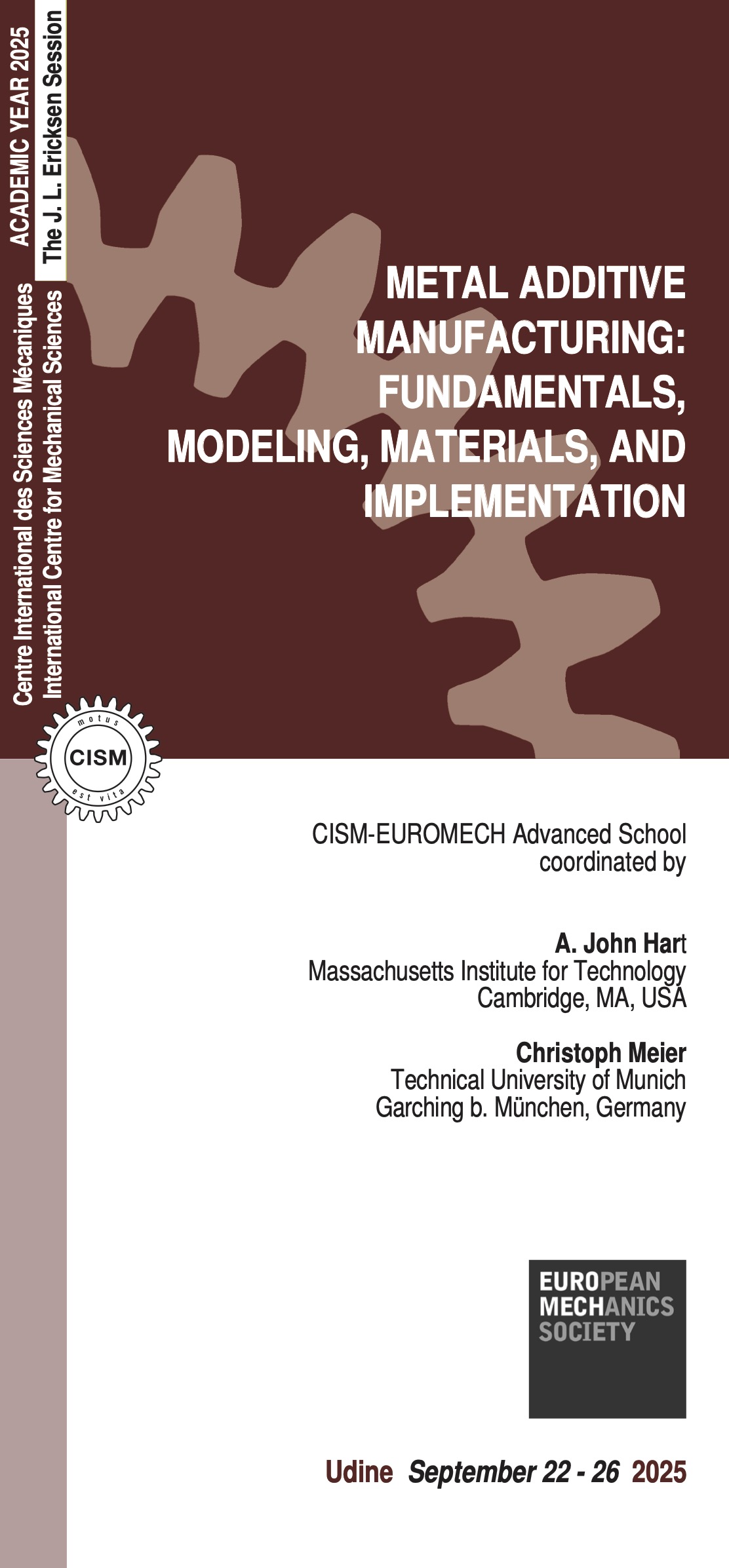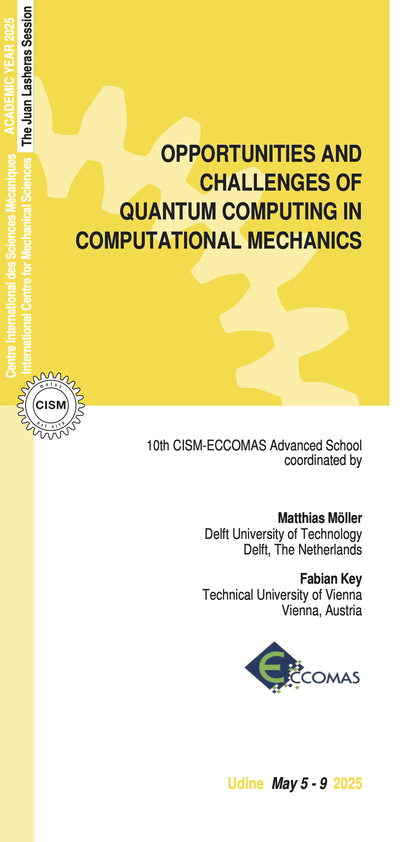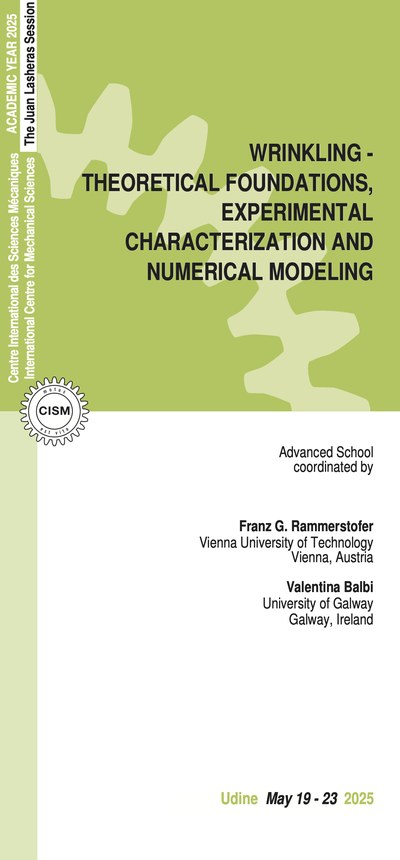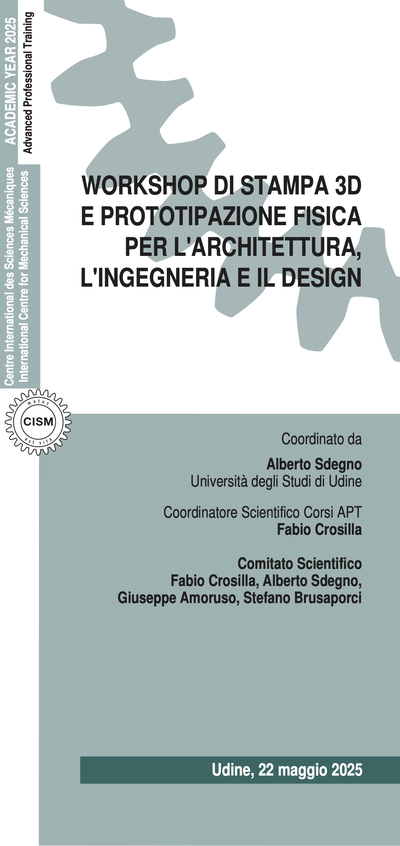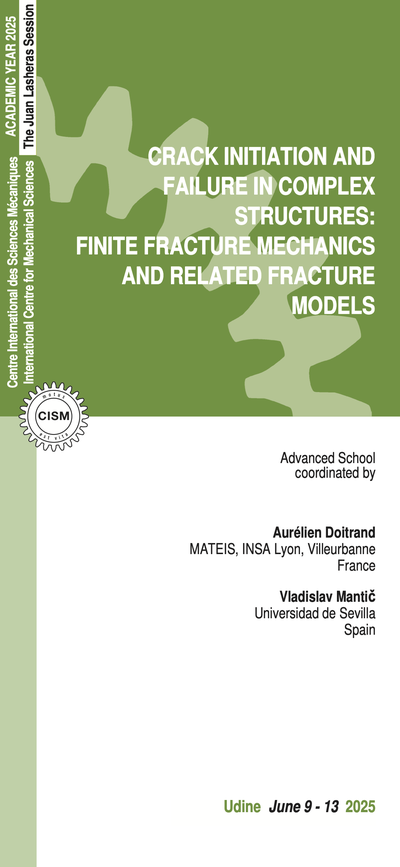Additive manufacturing (AM) of metals offers highest production flexibility, almost munlimited freedom of design and the potential for pointwise control of microstructure mand mechanical properties. However, a sub-optimal choice of process parameters often leads to high residual stresses, dimensional warping, porosity, undesirable microstructures or even failure of the part during production. The main objective of this course is to convey the physical fun damentals of metal AM processes, the basics of process implementation and monitoring, material aspects as well as modeling and simulation techniques on different length scales.
The course begins with an overview of existing metal AM processes comprising powder bed fusion (PBF), directed energy deposition (DED), binder jetting (BJ), and material Jetting (MJ). After conveying the physical and technical fundamentals, key performance attributes, and potential fields of application, means of monitoring and process control are presented. Different types of defects in metal AM are categorized and strategies for defect detection via in-situ and ex-situ metrology (e.g., X-Ray CT, density inspection, geometry control) are discussed.
Moreover, the course will convey essential material aspects such as the principles, mechanisms, and kinetics of solidification as well as the fundamentals of equilibrium and non-equilibrium thermodynamics. Phase formation and microstructure control, alloy design, powder metallurgy and process-microstructure-property correlations will be discussed in the context of metal AM and compared to conventional casting.
A further focus of the course lies on modelling and simulation approaches in metal AM, covering the underlying modelling assumptions, governing equations, discretization strategies as well as numerical aspects (e.g., balance of computational efficiency and solution accuracy). Specifically, modelling strategies for the mechanics, radiation transfer, heat transfer and sintering kinetics in powder beds are discussed.
Moreover, mesoscale thermo-hydrodynamics modelling and simulation approaches aiming at the prediction of melt flow instabilities and final part properties such as surface roughness, layer-to-layer adhesion and residual porosity are conveyed. Eventually, part-scale thermo-solid-mechanics modelling and simulation approaches aiming at the prediction of residual stresses, thermal strains, constitutive behavior, and dimensional warping at the length scale of entire design parts are presented.
Each set of lectures will start from the respective basics but will then quickly move on to cutting-edge research topics. The lectures are primarily designed for doctoral students of mechanics, engineering, material sciences and physics with a strong interest in the different research aspects of metal AM. However, they are equally suited for young and senior researchers, who would like to gain a comprehensive overview in an efficient compact course format. It might also be interesting for practicing engineers working on high-level industrial applications of metal AM.
Meier, C., Penny, R., Zou, Y., Gibbs, J.S., Hart, A.J.: Thermophysical phenomena in metal additive manufacturing by selective laser melting: Fundamentals, modeling, simulation and experimentation, Annual Review of Heat Transfer, 20:241-316, 2017.
Grasso, M., Colosimo, B.M.: Process defects and in-situ monitoring methods in metal powder bed fusion: a review, Measurement Science and Technology, 28:1-25, 2017.
DebRoy, T., Wei, H.L., Zuback, J.S., Mukherjee, T., Elmer, J.W., Milewski, J.O., Beese, A.M., Wilson-Heid, A., De, A., Zhang, W.: Additive manufacturing of metallic components - process, structure and properties. Progress in Materials Science, 92:112–224, 2018.
Gusarov, A.V. , Smurov, I.: Modeling the interaction of laser radiation with powder bed at selective laser melting, Physics Procedia 5:381, 2010.
Hodge, N.E., Ferencz, R.M., Solberg, J.M.: Implementation of a thermomechanical mmodel for the simulation of selective laser melting, Computational Mechanics, 54:33- 51, 2014.
Meier, C., Weißbach, R., Weinberg, J., Wall, W.A., Hart, A.J.: Critical influences of mparticle size and adhesion on the powder layer uniformity in metal additive manufacturing, Journal of Materials Processing Technology, 266, 484-501, 2019.
5 lectures on:
rocess monitoring and control involving in-situ and ex-situ metrology. (e.g., types of defects in metal AM; in-situ sensing: types of sensors and possible applications; ex-situ sensing (X-Ray CT, density inspection, control of geometrical specifications); basics of data-driven approaches (e.g., machine learning) and uncertainty quantification).
6 lectures on:
Material / metallurgical aspects of metal additive manifacturing.(e.g., principles, mechanisms and kinetics of solidification; equilibrium and non-equilibrium, thermodynamics; phase formation and microstructure control; alloy design for metal AM; processing – microstructure – property correlations of AM parts; properties of AM parts in comparison with conventional casting; aspects of powder metallurgy).
5 lectures on:
The modeling of energy absorption, heat transfer, and sintering in powder beds. (e.g., theory of radiative transfer in powder beds; theory of heat transfer in powder beds; ,experimental characterization of radiative and heat transfer in powder beds; sintering kinetics inadditive manufacturing).
6 lectures on:
Fundamentals of typical metal AM processes and their applications. (e.g., physical fundamentals, technical implementation and possible applications of the following processes: powder bed fusion (PBF; selective laser and electron beam melting), directed energy deposition (DED), binder jetting (BJ) and material jetting (MJ)).
5 lectures on:
The part-scale thermo-mechanics modeling in metal AM (.g., physical effects relevant for part-scale thermo-mechanics; modeling techniques and numerical methods; efficiency and accuracy of numerical models; prediction of residual stresses and dimensional warping; progress toward maximal representation of the process on part-scale domains).
6 lectures on:
The mesoscale modeling of powder mechanics, thermal multi-phase flow with phase change and coupled fluid-powder dynamics in metal additive manufacturing (e.g., derivation and calibration of cohesive powder models; simulation of powder recoating processes and prediction of powder layer characteristics; physical effects governing the melt pool thermo-hydrodynamics in PBF and the liquid binder dynamics in BJ; overview on different modeling techniques and numerical methods for multi-phase flow problems in metal AM; modelbased prediction of surface quality, pores and other mesoscale defects in metal AM).
ADMISSION AND ACCOMMODATION
The course is offered in a hybrid format, allowing participants the flexibility to attend either in person or remotely via the Microsoft Teams platform.
Admission to on-site attendance is granted on a first-come, first-served basis to comply with the capacity of the lecture room.
Application forms should be submitted online through the website: http://www.cism.it. A confirmation message will be sent to participants whose applications are accepted.
Registration fees:
- Early Bird On-Site Participation: € 650.00 + VAT* - Deadline: July 22, 2025
- Late On-Site Participation: € 800.00 + VAT* - Deadline: September 9, 2025
- Live Streaming Online Participation: € 250.00 + VAT* - Deadline: September 9, 2025
On-site participation includes a complimentary bag, five fixed menu buffet lunches, hot beverages, downloadable lecture notes.
Online participation includes downloadable lecture notes.
Upon request, and subject to availability, a limited number of on-site participants can be accommodated at the CISM Guest House for € 35 per person per night. To request accommodation, please contact foresteria@cism.it.
CANCELLATION POLICY
Applicants may cancel their registration and receive a full refund by notifying the CISM Secretariat in writing (via email) no later than:
- July 22, 2025, for early bird on-site participation;
- August 22, 2025, for late on-site participation;
- September 9, 2025, for online participation.
No refunds after the deadlines. Cancellation requests received before these deadlines and incorrect payments will be subject to a € 50.00 handling fee.
GRANTS
A limited number of participants from universities and research centers who do not receive support from their institutions can request a waiver of the registration fee and/or free lodging.
Requests should be sent to the CISM Secretariat by July 22, 2025, along with the applicant's curriculum vitae and a letter of recommendation from the head of the department or a supervisor confirming that the institute cannot provide funding. Preference will be given to applicants from countries that sponsor CISM.
